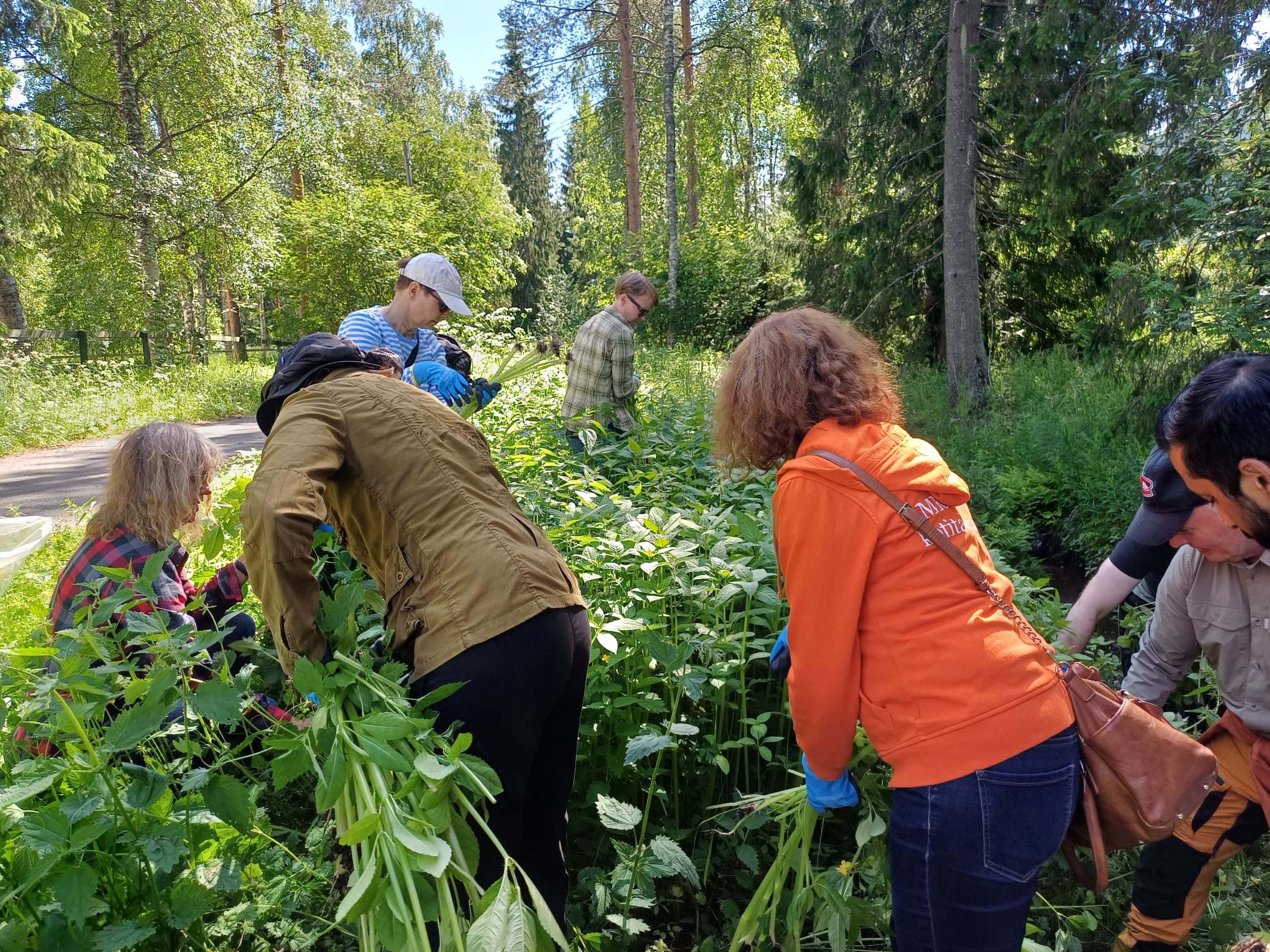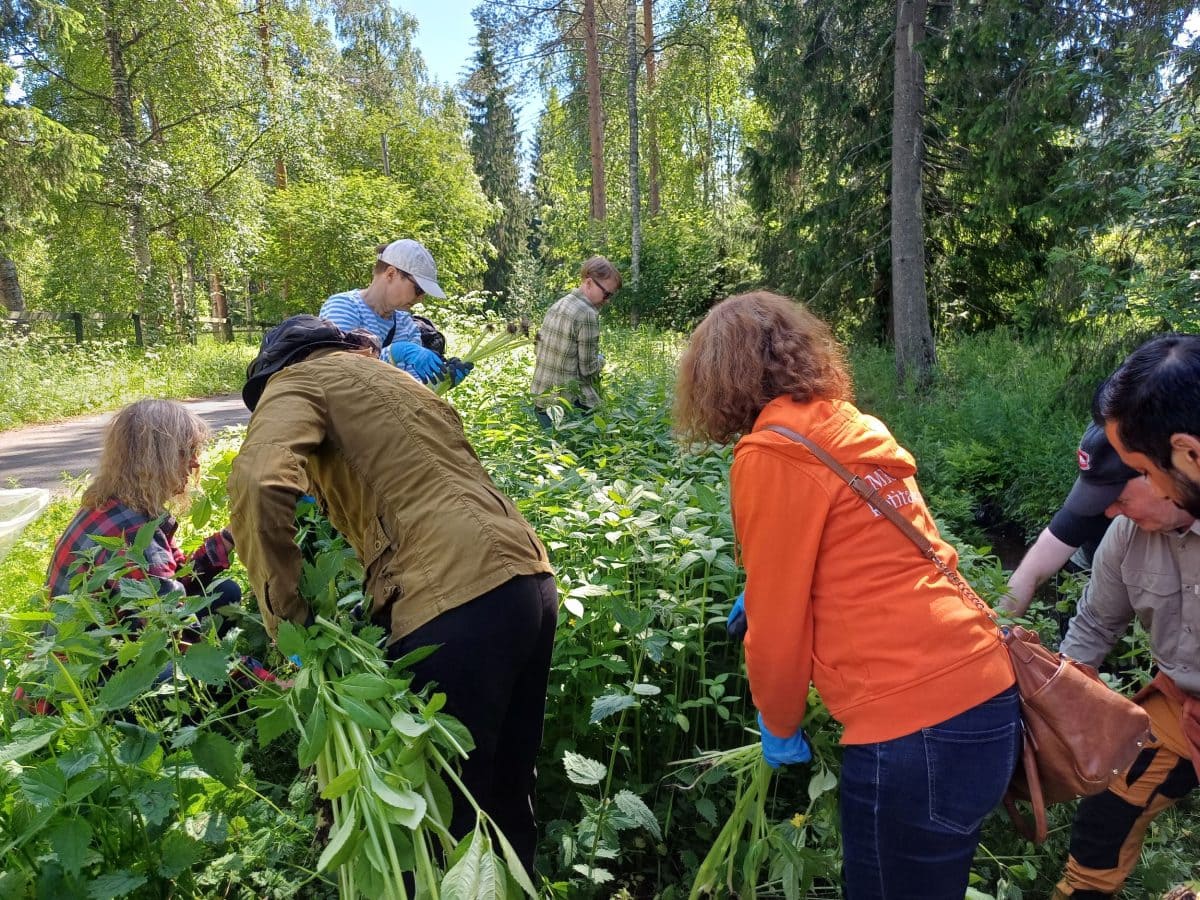
Invasive alien species do not respect national borders, meaning close cooperation between neighboring countries is a prerequisite for successful IAS management. Even though holidays were around the corner, around 30 participants from Finland, Sweden and Norway gathered for the IAS seminar in Rovaniemi on 26–27 June 2024. The attendees were from state administrations, municipalities, road administrations, research institutes, the third sector as well as the business world.
Wednesday June 26th was spent listening to seminar presentations at Science Centre Pilke and in the afternoon, the participants worked to solve IAS issues in workshops. At dinner, participants continued getting to know each other and sharing stories of IAS work.
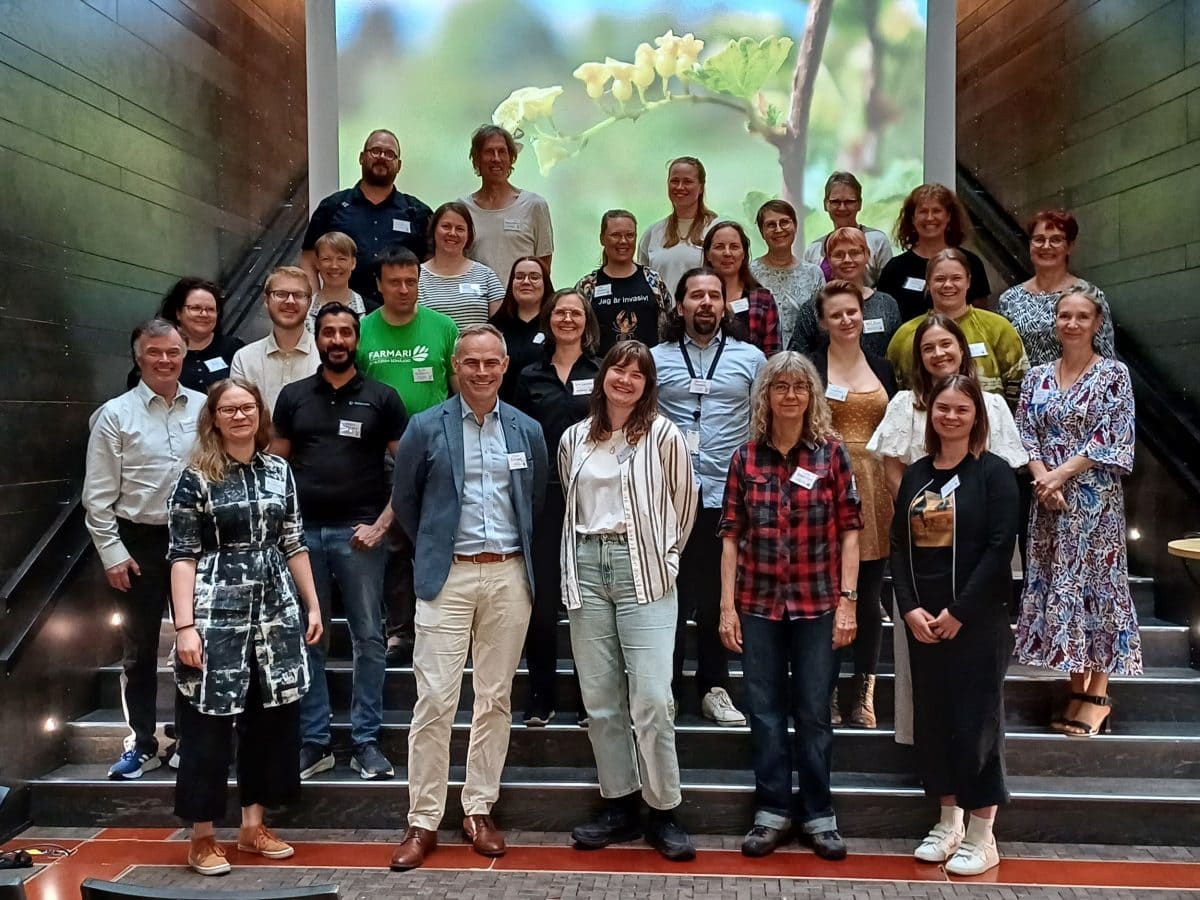
Thursday June 27th was spent with various work demonstrations as well as volunteer work.
The program included presentations on the effects of Finnish birch pyrolysis liquid and hot water treatment on hogweeds (Heracleum persicum spp.). Stian Forland introduced a solution from the Norwegian company SoilSteam to clean the seed bank of harmful invasive species from the soil.
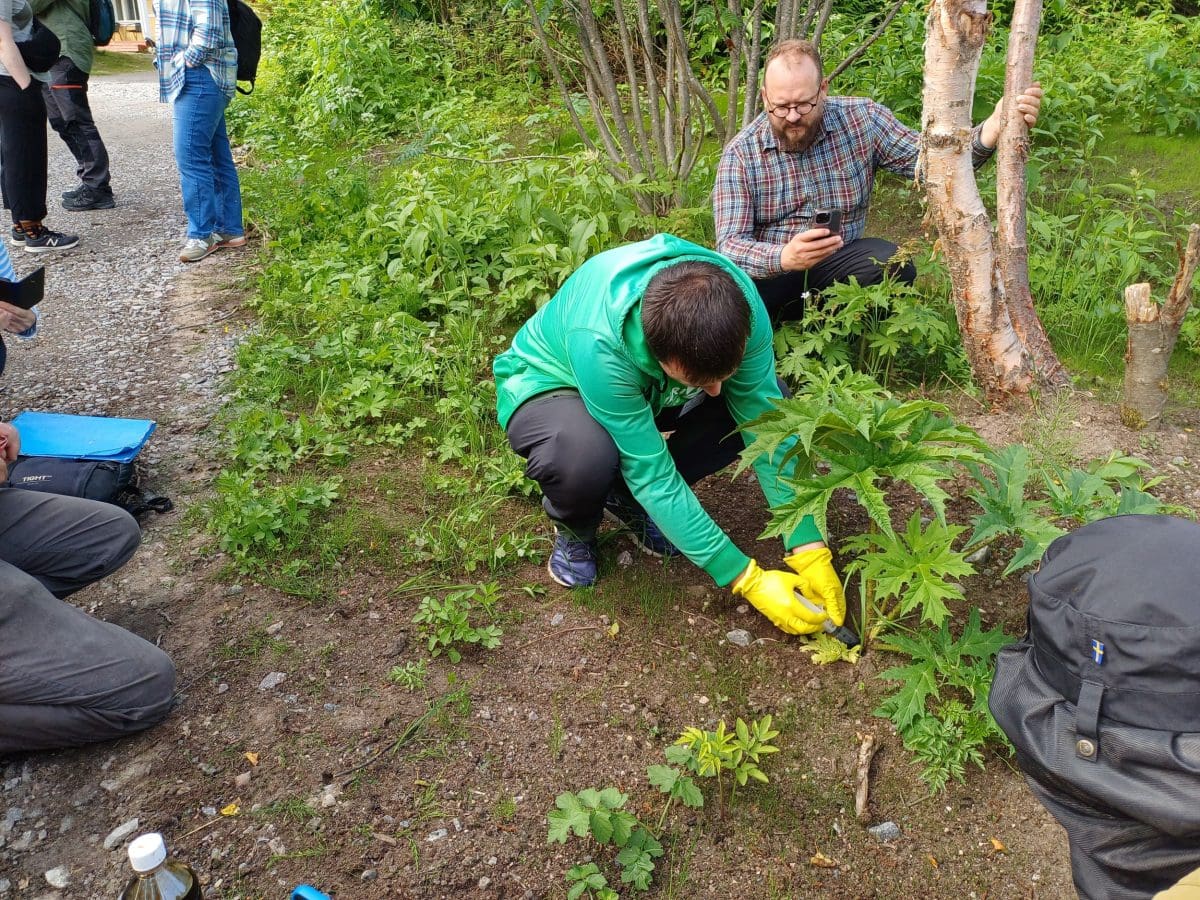
Participants were also able to observe how Himalayan balsam (Impatiens glandulifera) can be controlled through hot water treatment.
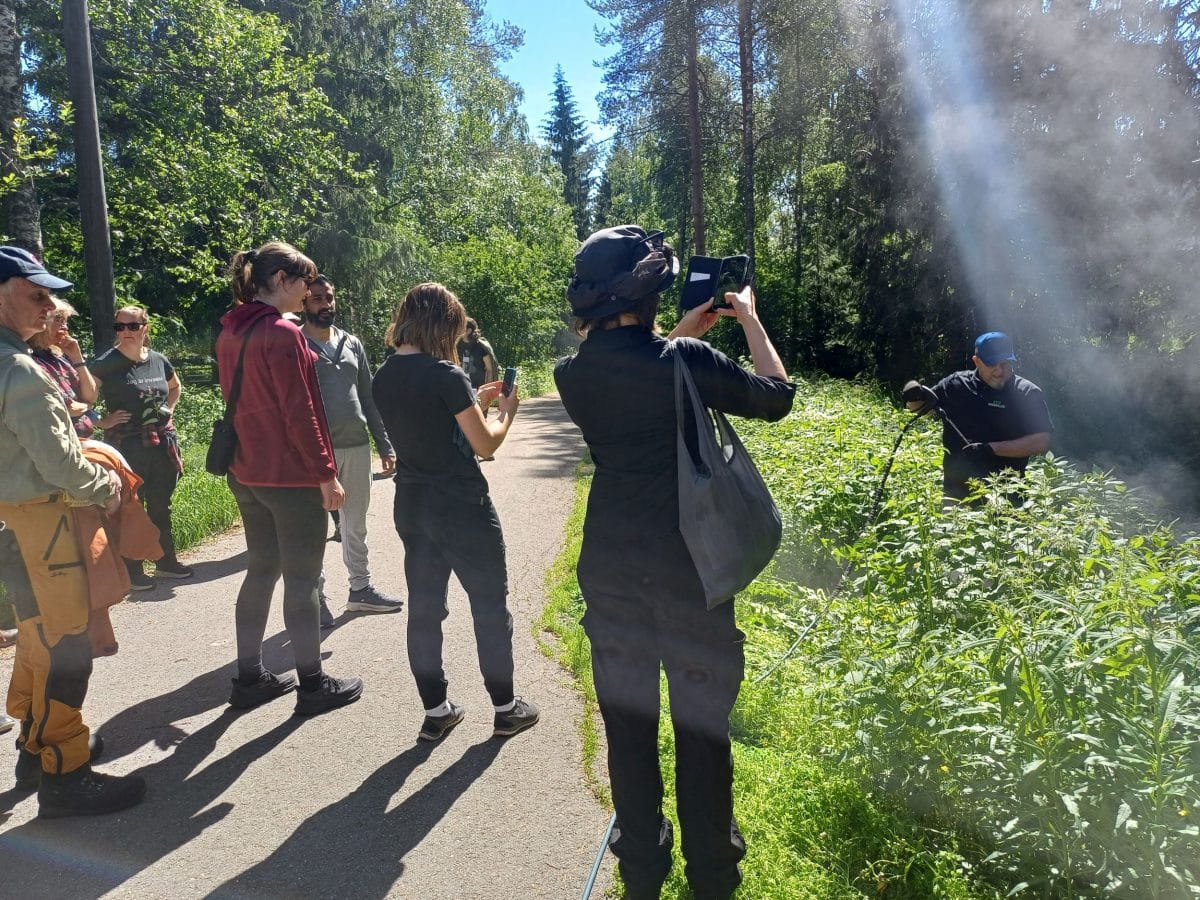
During the day, participants also became familiar with butterbur found in Rovaniemi’s urban landscape. They discussed when a plant should be considered invasive and whether invasive alien species have important functions, such as the butterbur in Rovaniemi which prevents erosion along the riverbank.
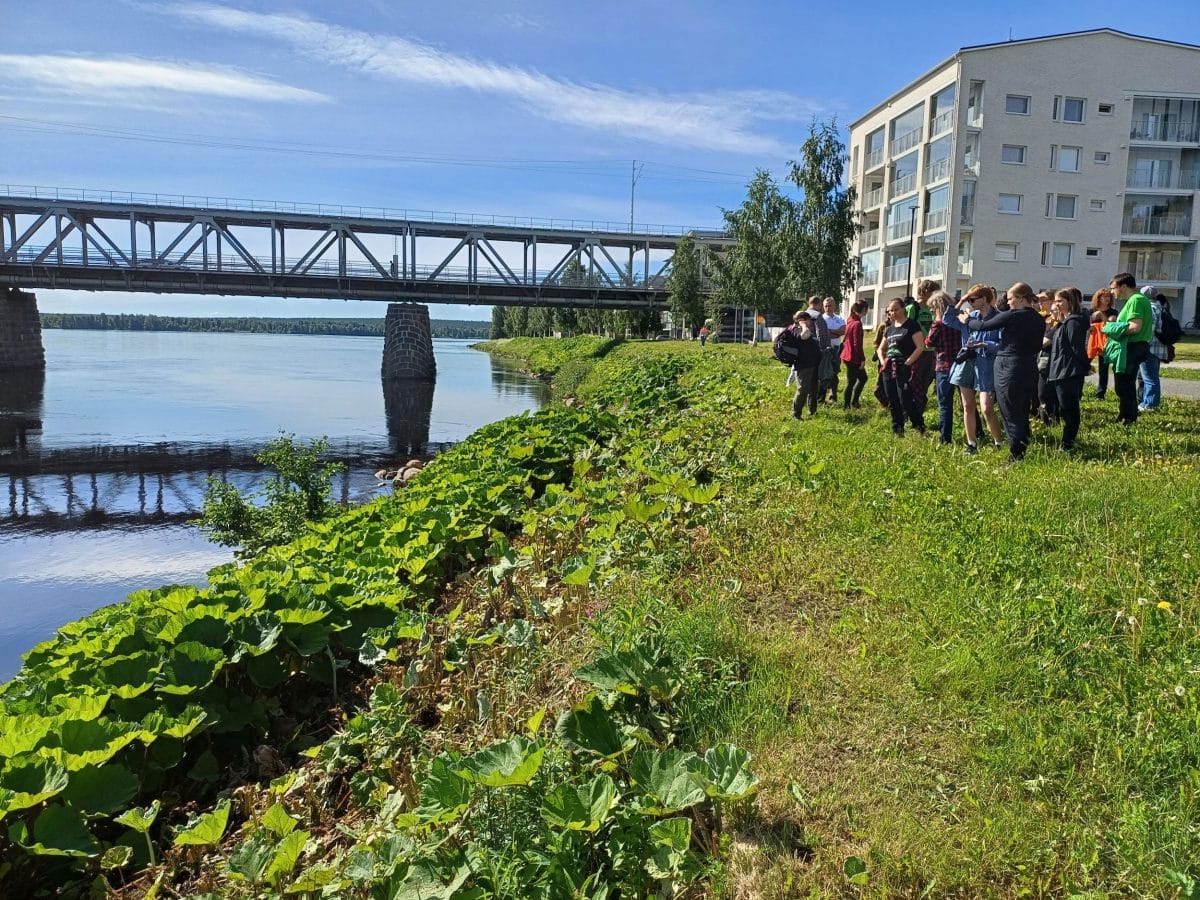
At the riverside, conveniently right next to the railway bridge, Susanna Koivujärvi from the Finnish Transport Infrastructure Agency talked about utilizing artificial intelligence in controlling invasive alien species along railways and roads.
Participants also had the chance to see the beautiful botanical gardens of the Arktikum Science Centre. The garden contains a few seedlings of the Nootka lupine (Lupinus nootkatensis), and the attendees went over how garden lupines (Lupinus polyphyllus)and Nootka lupines can be differentiated.
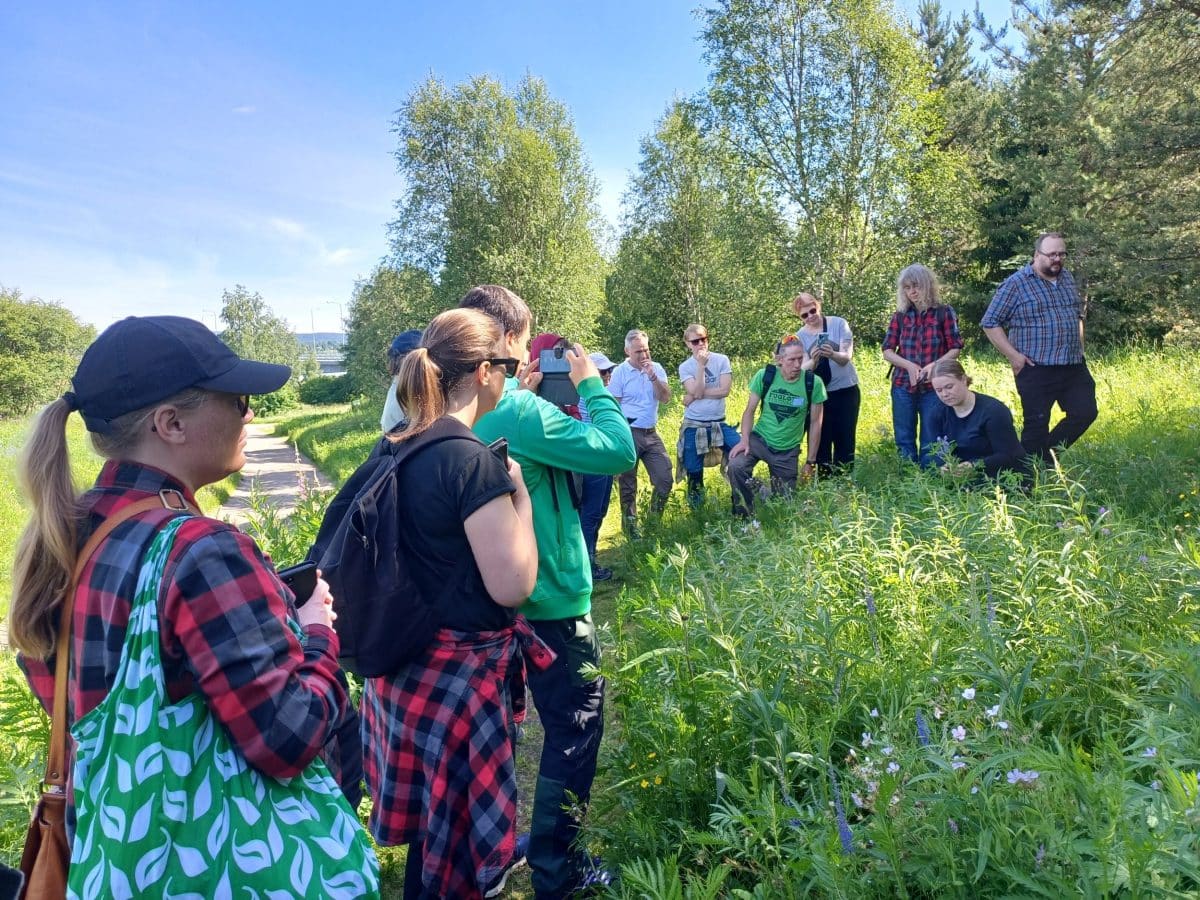
The field day and the seminar as a whole was wrapped up with an anticipated event, when participants got to experience a popular Finnish tradition: communal voluntary work or ‘talkoot’. Under the guidance of Ursula Karjalainen from the Keep Lapland Tidy association, attendees weeded out Himalayan balsam. Lastly, of course, volunteers had a chance to enjoy some coffee and snacks, which is an integral part of the tradition. Then it was time for the participants to head home, bringing with them a wealth of information, great ideas and some new and useful contacts.
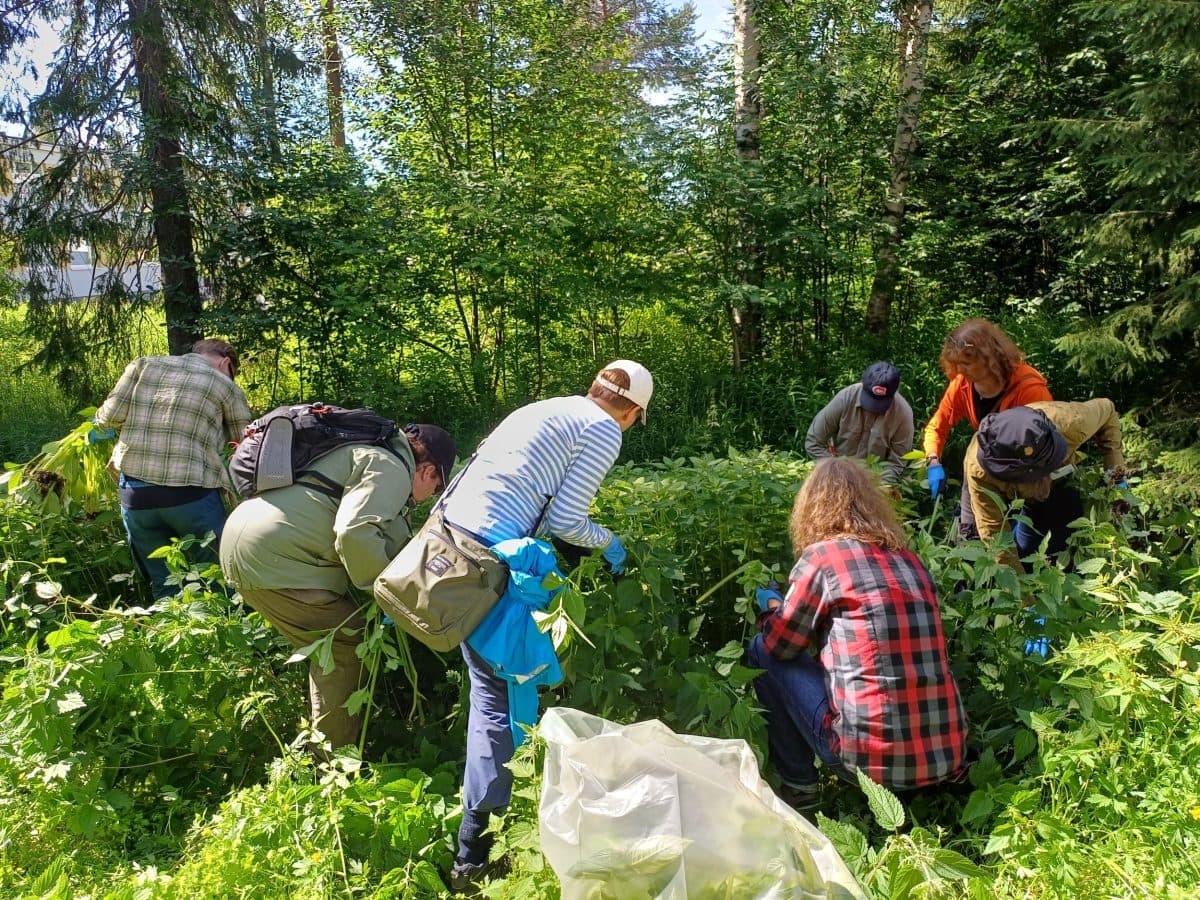
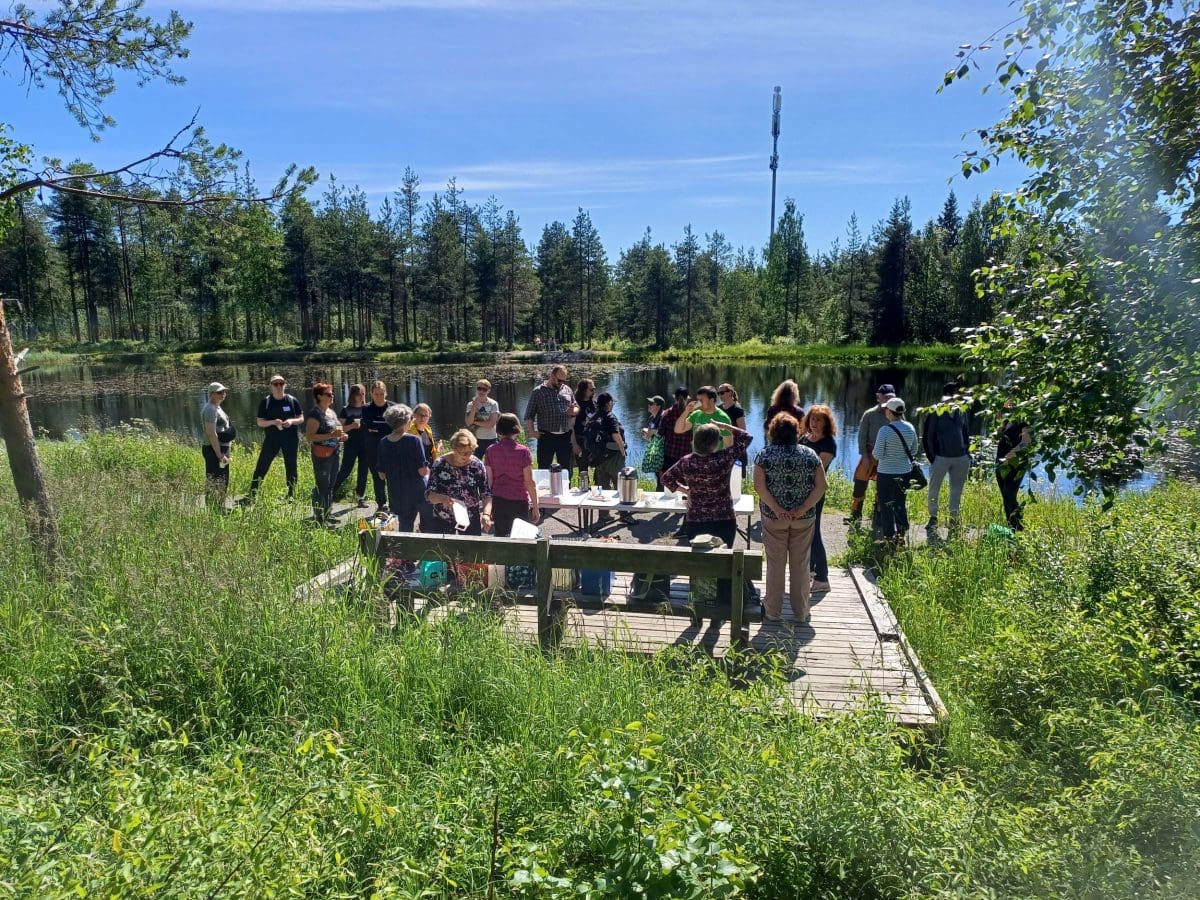
Text and photos: Susanna Winqvist (Rural Women’s Advisory Organization)
